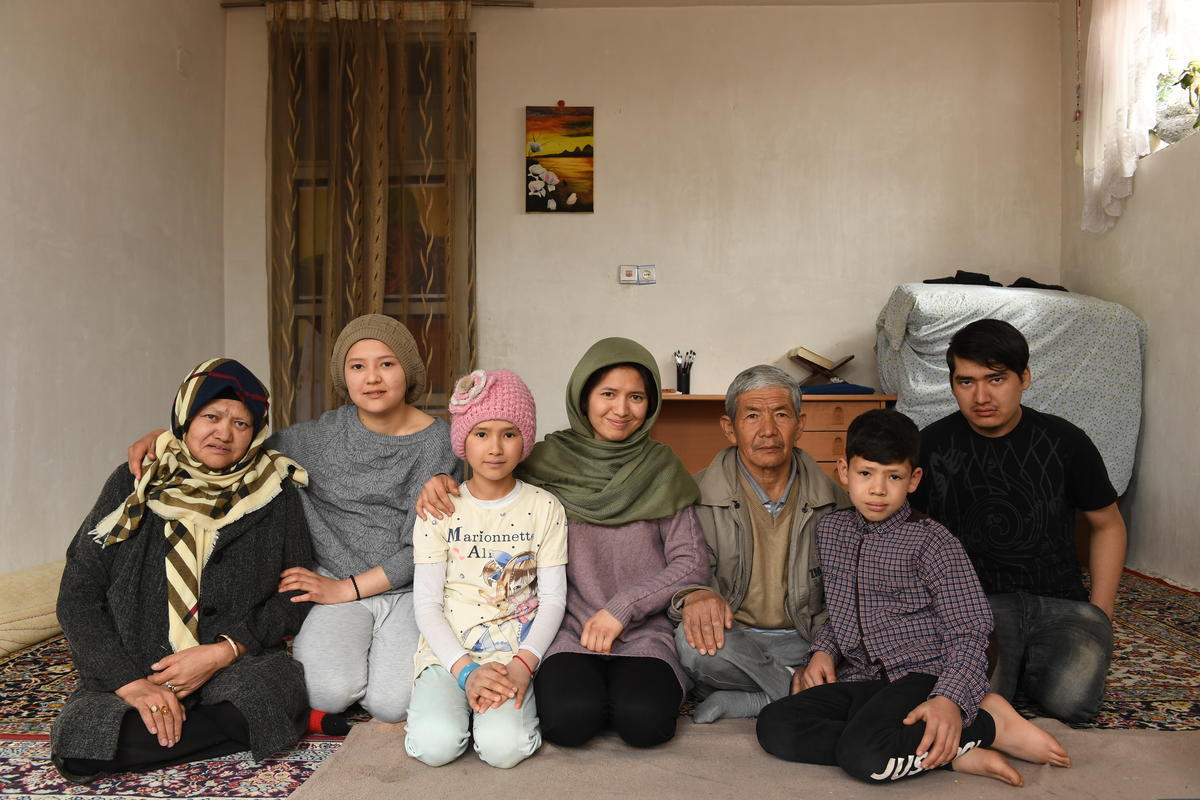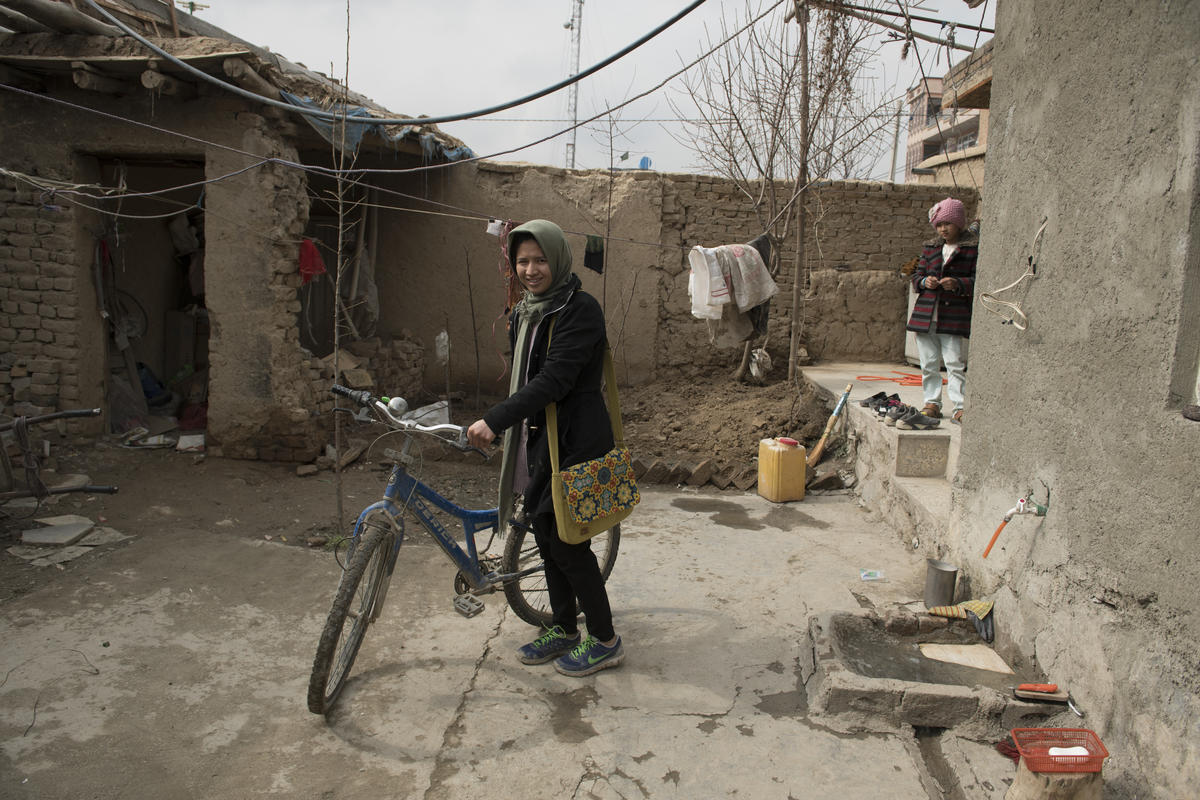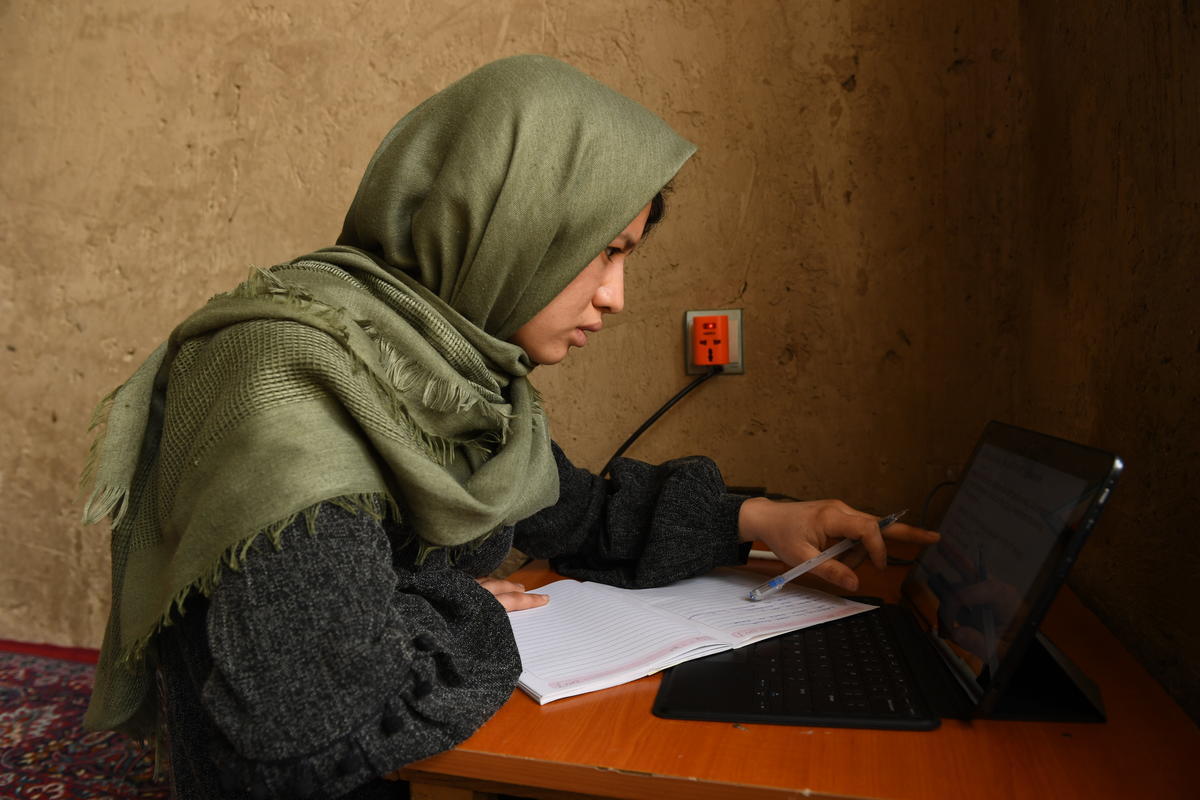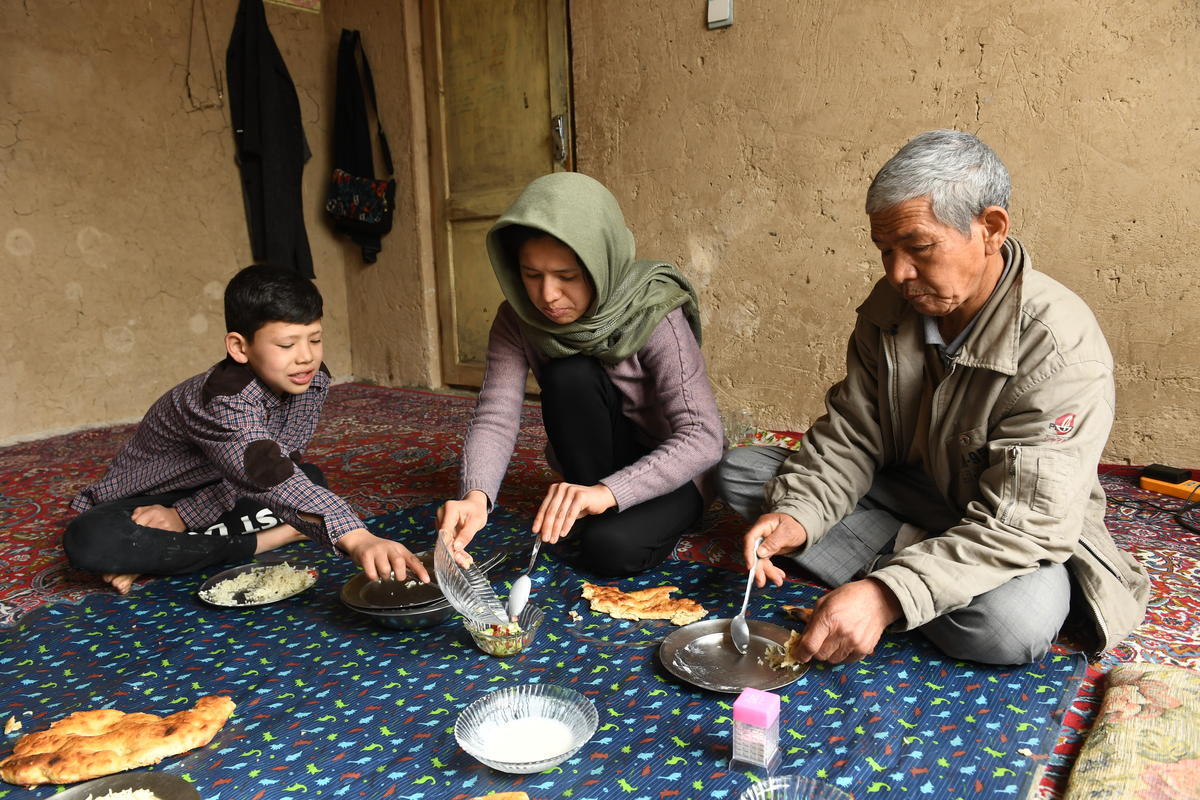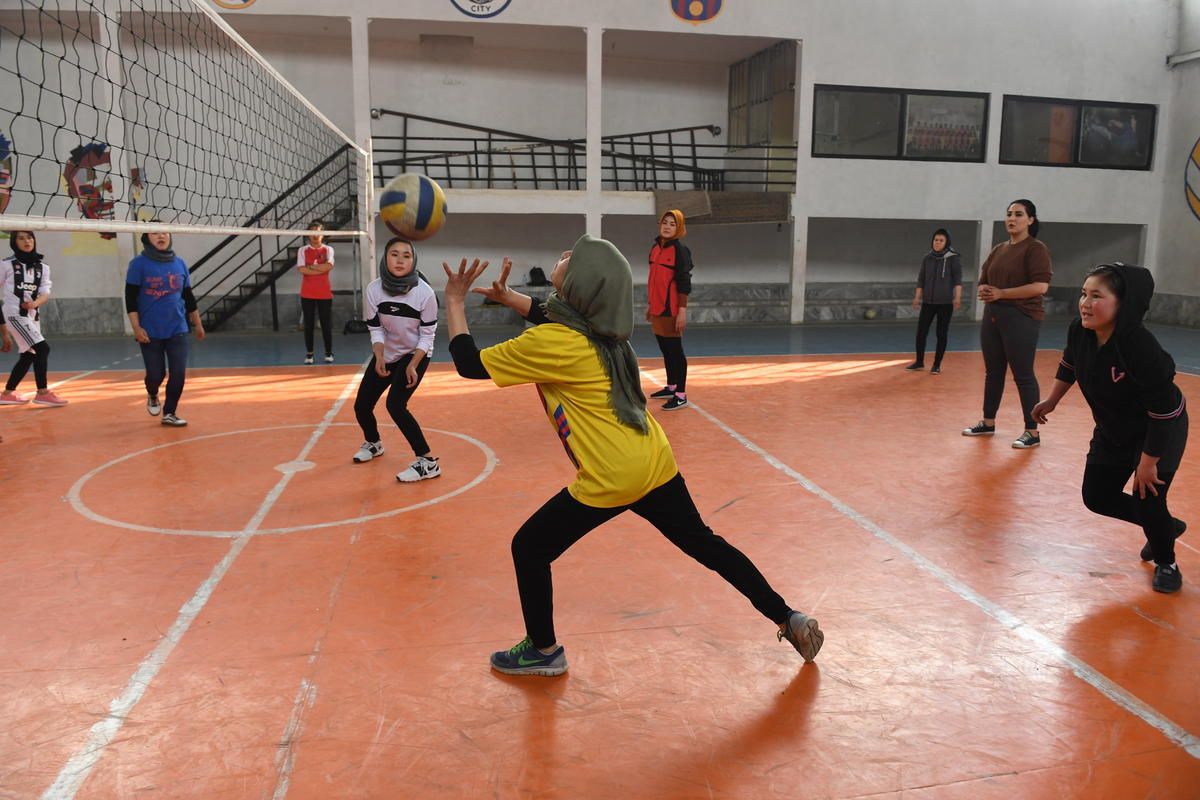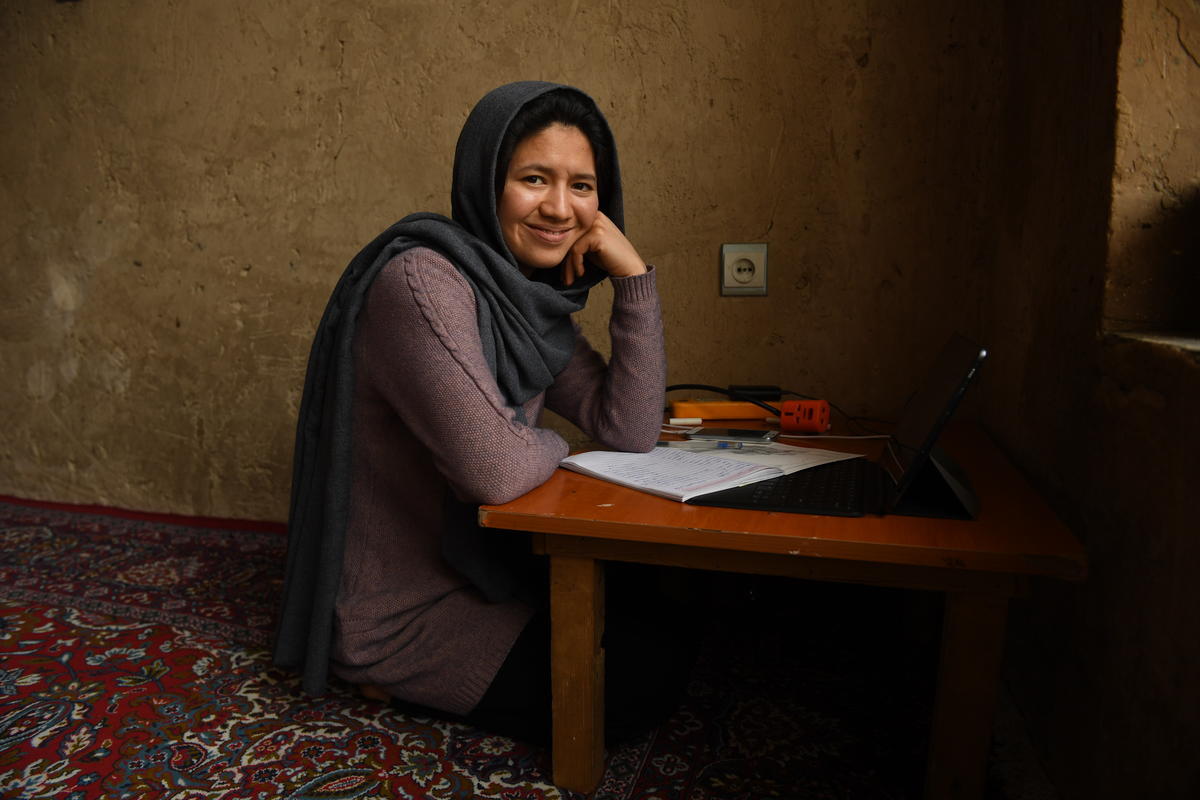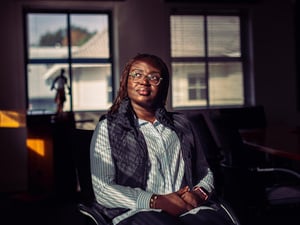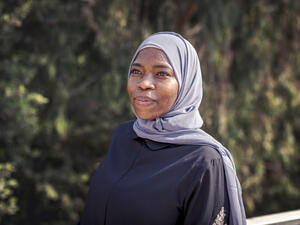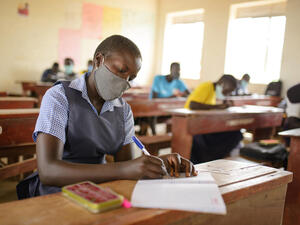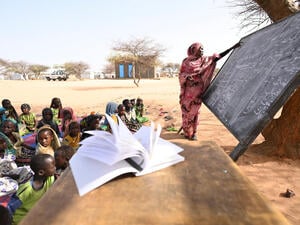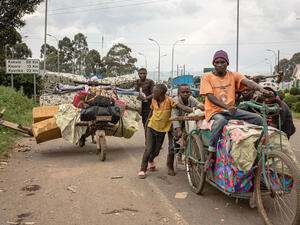'If I couldn't study, I would feel paralyzed'

'If I couldn't study, I would feel paralyzed'
Since 1992, UNHCR, the UN Refugee Agency, has awarded more than 18,500 scholarships to young refugees around the world so they can attend university. Mainly funded by the German government, the DAFI Scholarship Programme provides money for tuition, textbooks, food, transportation and other expenses.
Kobra Yusufy, 27, spent many years watching over her older brother's shoulder as he tapped away on a borrowed computer. An avid volleyball player, cyclist and carpet weaver, Kobra dreamed of studying software engineering. Kobra's parents are illiterate. Kobra's father, who makes money using a wheelbarrow to cart other people's stuff around town, earns just enough money to support the family.
Now, Kobra studies software engineering at Kabul University thanks to a DAFI scholarship. One of the first DAFI recipients in Afghanistan, Kobra dreams of someday teaching young people to use computers.
Born in exile in Iran, Kobra returned to Afghanistan with her family when she was nine-years-old. One year later, the family fled again, to Pakistan. In 2006, the family returned to Kabul through UNHCR’s voluntary repatriation programme.
Fellow DAFI scholar and aspiring journalist Robina Raoufi conducted an interview with Kobra. Below is an edited excerpt.*
"Watching my brother work on the computer at home, I realized the independence he has."
Q: What did you imagine you would do with your life if you couldn’t study?
A: If I couldn’t study, I would feel paralyzed. I would be living my life as just a body in this world and would not be able to contribute to society.
Q: How did you learn about the DAFI scholarship?
A: One of my classmates found the leaflet at Kabul University, and after that, UNHCR organized an awareness session. The beauty of the DAFI scholarship is you can get support without going to a third country – so you can be close to your family and continue your education.
Q: Why did you choose to study software engineering?
A: My older brother is a software engineer. He used to work at home on the computer, which he borrowed from someone. Watching him work on that computer was what started my interest. What interested me most was coding. I particularly wanted to know more about how the online credit system is connected to mobile phones. Another thing that interested me was how coding is used to develop online games. Watching my brother work on the computer at home, I realized the independence he has. He is his own boss and he has the freedom to work anytime, day or night. That also interested me.”
Q: What is your plan after you graduate?
A: I want to work in the national passport office to earn income. But in the meantime I also want to teach on the side– it will be a way for me to support communities. I know what it is like to suffer from a poor education. Along with my other classmates, I want to organize three to four month-long courses for school students free of charge and would especially like to conduct them in my former [high] school.
Other parents force their children to study medicine or other subjects. My father has always said that he wants me to study and become a teacher, which I really appreciate. Ultimately, I would like to teach full time and teach the younger generation. This will make me happy.
Q: You told us you know how it feels not to be able to afford to study. Can you describe that feeling?
A: I felt sad and isolated and it was particularly painful when I couldn’t get the answers to the questions I had. We had unqualified teachers [in primary and secondary school] as well. I was very worried that I wouldn’t get the marks I needed to pass my exams.
Q: How did you feel when you entered university on the first day?
A: I was most worried about the teachers. I had heard from friends that the teachers were more serious in university and that there was a high level of competition because there were so many intelligent men and women – many of whom had topped their classes in high school. I was excited but also nervous.
"I would like to teach the younger generation. This will make me happy."
Q: How did you start playing volleyball?
A: My elder brother encouraged me to join him. I joined my brother to play with a team of teachers and students from private and public universities, including Kabul University. There are two other girls who are university teachers. The rest of the team is made up of men.
Q: What other hobbies are you interested in?
A: I love riding bicycles, even though it is not a common activity for girls in Afghanistan. So far, I haven’t had any major issues. Normally people just say, ‘oh look that girl is riding a bicycle!’ But that’s it. I am comfortable when I ride my bicycle.
Q: Do you think you will continue carpet weaving?
A: Yes, I can still do carpet weaving. I was initially trained in Kabul, but in Pakistan I fully developed my carpet weaving skills. I wove carpets day and night during my time in Pakistan.
*This interview was conducted with help from UNHCR staff and has been edited for length and clarity. Robina Raoufi studies communications and journalism at Kabul University and received a 2019 DAFI scholarship.
All education institutions in Afghanistan are now closed as a preventative measure to curb the spread of COVID-19 in the country. UNHCR continues to provide Kobra, Robina and all other DAFI scholarship students with their monthly allowance to help them continue to study in their homes and make it through these economically challenging times for Afghans.
- See also: Four decades and counting: An urgent need to rekindle hope for millions of Afghan refugees

